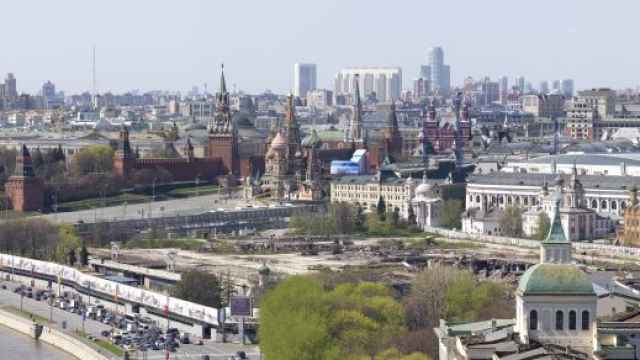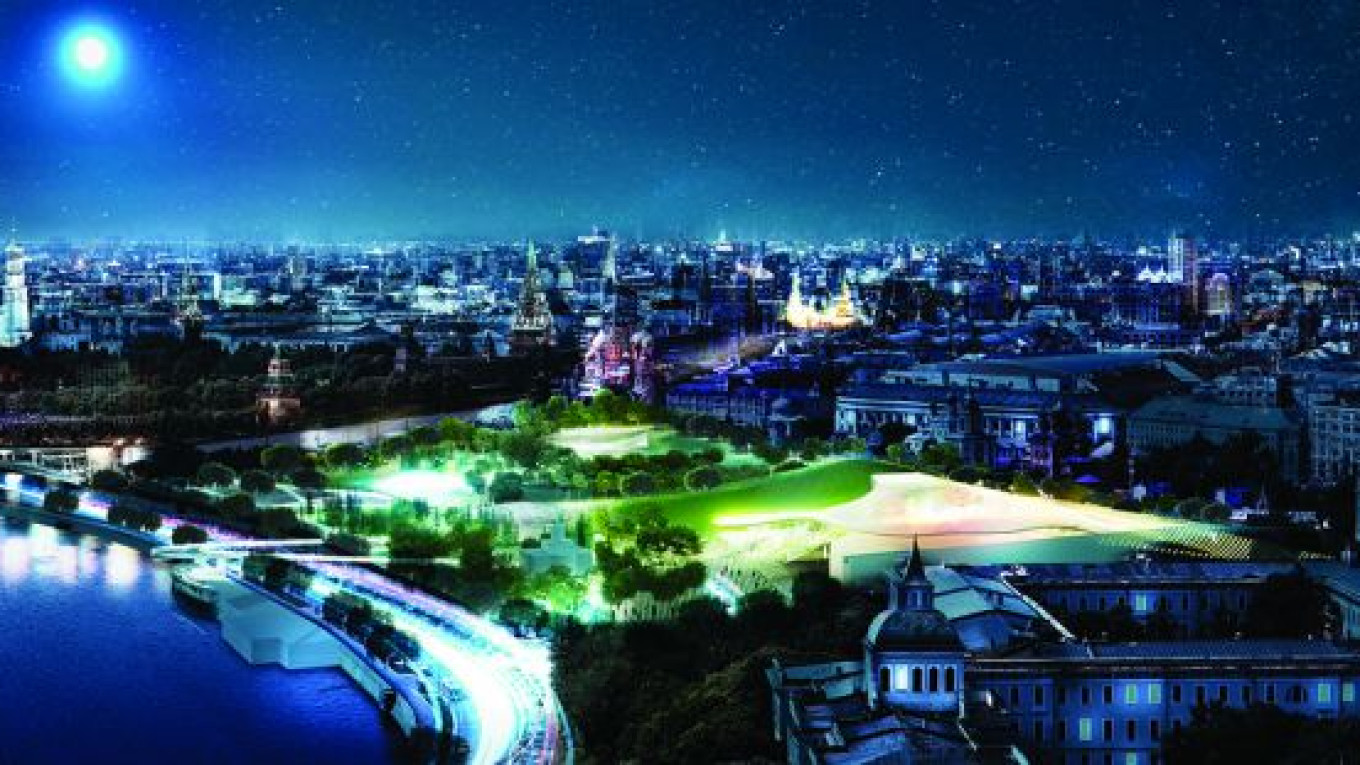A concept developed by an American studio has won the international competition to design a park on the? site of the oldest settlement outside the Kremlin walls in Moscow.
One of the few remaining underdeveloped sites in Moscow’s center, Zaryadye previously was occupied by the Rossiya hotel, the largest in the world before 1990 and the largest in Europe before its demolition in 2006.
In January 2012, then-Prime Minister Vladimir Putin proposed building a park on the site of the hotel, which currently remains barren, instead of office or residential developments as was previously planned.
The winning project was developed by New York-based design firm Diller Scofidio Renfro, which designed the High Line elevated park in Manhattan, and aims to create a strong bond between nature, the city and the surrounding monuments.
The territory will be divided into four typical Russian landscape zones: tundra, steppe, forest and marsh — each providing a different perspective onto the Kremlin. The project’s website said the park will use “sustainable technologies, such as temperature regulation, wind control and natural light stimulation” in order to achieve the result.

The new park will be the city's first in 50 years.
Speaking at the announcement ceremony, Moscow Mayor Sergei Sobyanin said that City Hall is looking into expanding the area by turning the adjacent Ulitsa Varvarka into a pedestrian area and using the territory of the Bolshoi Moskvoretsky bridge nearby.
The final design will use the best elements of the other projects as well. Finalists included a Russian concept that came in second and a Dutch design which finished third.
Cost estimates for implementing the designs that were offered range from $171 million to $230 million. City authorities have said they would like the final bill to come in under $200 million. It is the first new park to be built in Moscow in the last 50 years.
A Message from The Moscow Times:
Dear readers,
We are facing unprecedented challenges. Russia's Prosecutor General's Office has designated The Moscow Times as an "undesirable" organization, criminalizing our work and putting our staff at risk of prosecution. This follows our earlier unjust labeling as a "foreign agent."
These actions are direct attempts to silence independent journalism in Russia. The authorities claim our work "discredits the decisions of the Russian leadership." We see things differently: we strive to provide accurate, unbiased reporting on Russia.
We, the journalists of The Moscow Times, refuse to be silenced. But to continue our work, we need your help.
Your support, no matter how small, makes a world of difference. If you can, please support us monthly starting from just $2. It's quick to set up, and every contribution makes a significant impact.
By supporting The Moscow Times, you're defending open, independent journalism in the face of repression. Thank you for standing with us.
Remind me later.


